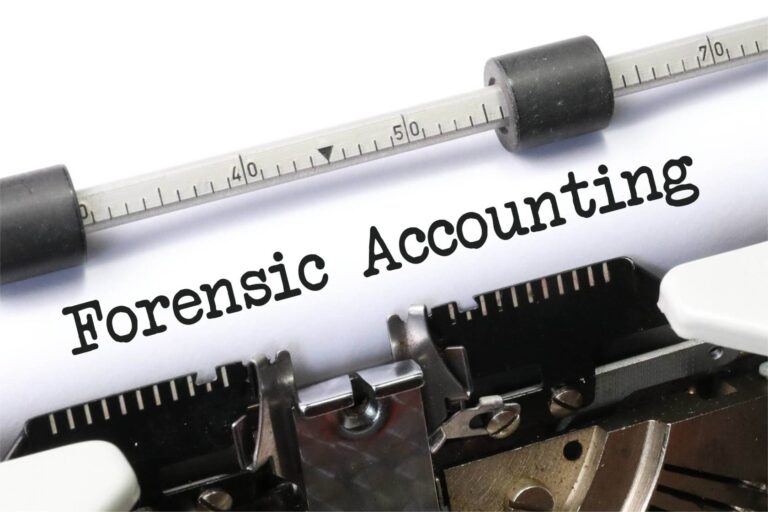What Is Forensic Audit? - Definition and Types

Introduction to Forensic Audit
A forensic audit is a special type of audit that helps uncover fraud and financial misconduct. Unlike regular audits, which check if financial records are accurate and follow rules, forensic audits go a step further. They investigate suspicious activities, trace missing money, and provide evidence for legal cases.
In today’s business world, financial fraud has become a big problem. Companies, investors, and government authorities are constantly trying to prevent fraud and ensure transparency. This is where forensic audit comes in.
Fraud has become more advanced with technology, making it harder to detect. From fake financial reports to cyber fraud, businesses face many risks. Forensic auditors use special tools, data analysis, and investigation techniques to find fraud and help companies take legal action.
Understanding Forensic Auditing
A forensic audit is a detailed investigation of a company’s financial records to find fraud, errors, or illegal activities. It is different from a regular audit because it is done when there is a suspicion of wrongdoing. The main goal of a forensic audit is to gather proof that can be used in court or for legal action.
How is it Different from a Regular Audit?
A regular audit checks if financial statements are correct and follow accounting rules.
A forensic audit looks for fraud, misconduct, and financial crimes. It focuses on uncovering hidden issues.
Who Conducts a Forensic Audit?
Forensic audits are done by experts such as:
Forensic auditors – Professionals trained in fraud detection.
Chartered accountants (CAs) – Experts in financial reporting and auditing.
Legal and investigation experts – Help in legal cases related to fraud.
Forensic auditors follow a structured process, gathering documents, analyzing transactions, and interviewing people involved. Their findings can help companies take action against fraudsters, improve security, and prevent future financial losses.
Common Types of Corporate Frauds
Fraud in businesses can happen in many ways. Some people manipulate financial records, while others steal money or take bribes. Here are some of the most common types of corporate fraud that forensic audits help uncover:
1. Financial Statement Fraud
This happens when companies change their financial reports to show better profits, hide losses, or mislead investors. Some common tricks include:
Overstating revenue – Showing more income than the company actually earned.
Underreporting expenses – Hiding costs to make profits look bigger.
Faking assets or liabilities – Claiming to own things they don’t or hiding debts.
2. Asset Misappropriation (Theft or Misuse of Company Resources)
This is the most common type of fraud and involves employees or executives stealing company money or assets. Examples include:
Embezzlement – Taking company money for personal use.
Fake invoices – Creating false bills and paying themselves.
Unauthorized transactions – Making payments or transfers without approval.
3. Corruption (Bribery and Unethical Deals)
Corruption happens when employees or business partners use their position for personal gain instead of following fair business practices. This includes:
Bribery – Giving or accepting money to get unfair benefits.
Kickbacks – Secret deals where someone receives a commission for arranging a business transaction.
Conflict of interest – Making business decisions that benefit themselves instead of the company.
4. Money Laundering and Cyber Fraud
With digital transactions becoming more common, fraud has moved online. Some major threats include:
Money laundering – Moving illegal money through fake transactions to make it look legal.
Identity theft – Using stolen company or customer details for fraud.
Hacking and data breaches – Stealing confidential business information.
Forensic audits help businesses detect these frauds early and take action to prevent financial and reputational damage.
Conclusion
Forensic audits play a crucial role in detecting and preventing financial fraud in businesses. Unlike regular audits, they focus on uncovering fraud, theft, and corruption, helping companies take legal action against wrongdoers.
With fraud becoming more advanced, forensic auditors use technology, data analysis, and investigative techniques to find hidden financial crimes. These audits not only help businesses recover lost money but also improve security, strengthen internal controls, and build trust among investors and stakeholders.
In today’s world, where financial fraud is a major threat, companies must stay alert and ensure their financial records are transparent. Conducting forensic audits regularly can help businesses stay safe, avoid legal trouble, and maintain their reputation.
Join our Forensic Audit Masterclass and elevate your investigative skill
Are you a Nov 24 Qualified CA?
Join the exclusive WhatsApp group to learn, network, and win together!